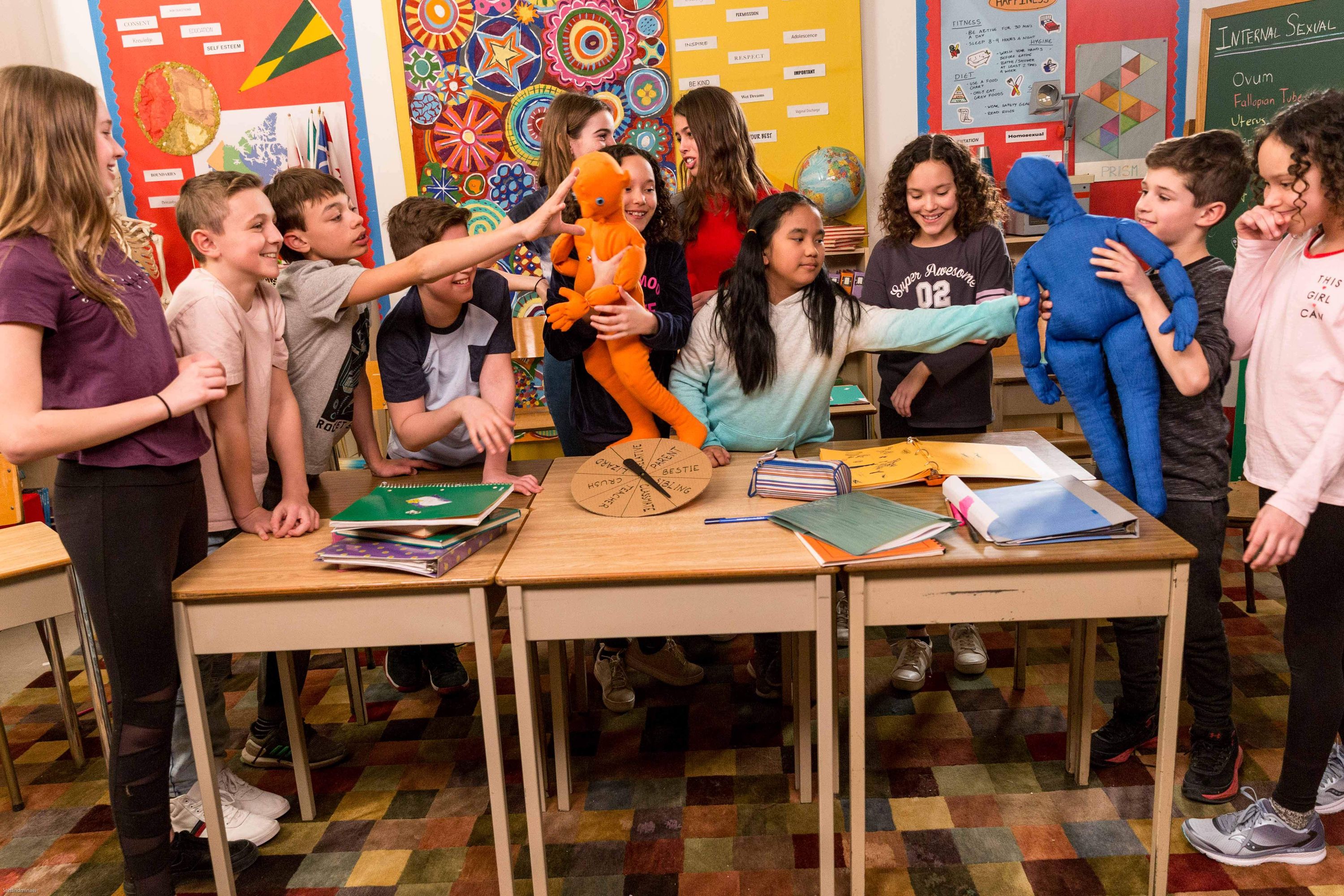Navigating Sensitive Topics: Sex Ed Insights & Resources
Is it possible to foster a safe and open environment where young people can explore complex issues surrounding sex and relationships, and what is the best way to do it? Creating an environment where young people can openly and honestly discuss sexuality, consent, and respectful relationships is paramount for their well-being and healthy development.
The search query initially yielded no results for a "Sex teacher student video a comprehensive guide on navigating sensitive topics," highlighting a common challenge: the difficulty in finding reliable, accessible resources for these crucial discussions. It's a critical gap that underscores the need for well-crafted educational materials. The absence of a specific video guide suggests that readily available, easily digestible resources on sensitive topics might be lacking, at least within the specified search parameters.
The realm of classroom discussions often involves navigating uncharted waters, and its essential to have a compass to guide us. Sensitive topics manifest themselves in many ways, each posing a unique challenge, particularly when teaching young minds. For educators, proactively addressing these issues is not just about fulfilling a curriculum requirement; its about equipping students with the critical thinking skills they need to engage thoughtfully with complex realities.
Comprehensive sex education plays a vital role in providing young people with the knowledge, skills, attitudes, and values to protect their health, develop healthy relationships, make responsible choices, and respect the rights of others. Such education goes beyond the mere imparting of biological facts; it also delves into the ethical and emotional dimensions of human relationships. This approach has an added advantage to challenge what is known as "pressured" sex in relationships.
Before the first class session, educators should thoughtfully review their materials. It's important to anticipate and identify the areas where difficult topics might arise. In addition, staying informed about emerging cultural and political themes that could be impacting students can prove invaluable. By acknowledging and preparing for these potential discussion points, teachers can create a safer, more respectful classroom setting.
Assistant Professor Dr. Denise Handlarskis video series offers practical support for teachers and students dealing with these sensitive topics. The series is designed to provide information and guidance, and in that way, helping navigate the complex landscape of discussions. Designed for students, these videos aim to build knowledge and understanding about consent, gender, sexual diversity, and everyday queries. This allows students to learn more about the issues they are facing.
One way to establish a respectful environment is by highlighting the value of differing viewpoints. Reminding students that they have a right to agree or disagree with the perspectives of others is a good practice. Similarly, the Golden Rule "Do unto others as you would have them do unto you" should be taught and implemented as a standard of civility and empathy. Teachers can help students in understanding the guidelines for discussing sensitive subjects and creating a welcoming environment. By placing the discussion in that context, students can approach sensitive topics with an open mind.
Access to accurate, relevant, and age-appropriate information is crucial. Students should have access to well-researched, reliable resources to help them navigate their own healthy sexuality. This is a fundamental right.
Advocacy for comprehensive sex education continues to gain momentum, with educators and policymakers recognizing its value as a vital resource. The increasing demand for such education highlights the need for inclusive and diverse programming that meets the needs of all students. It also reflects the development of educational materials and resources that are inspired by the approach to sensitive topics, in a format that is easily understandable.
The emphasis on sexuality education extends beyond mere factual knowledge; it encourages students to develop the necessary skills, attitudes, and values for a successful life. It empowers them to protect their health, maintain healthy relationships, make responsible choices, and respect the rights of others. This education offers a transformative experience.
The goal of a good sex education program is to prepare children and young people to make well-informed decisions. It arms them with critical thinking skills, emotional intelligence, and ethical standards. The ultimate goal is to empower the students.
The following table provides a more detailed overview of the key aspects of comprehensive sex education and the importance of fostering open, respectful discussions:
| Aspect | Description | Importance |
|---|---|---|
| Knowledge | Providing accurate information about anatomy, physiology, and reproduction. | Enables informed decision-making, dispels myths, and promotes understanding. |
| Skills | Developing communication, decision-making, and refusal skills. | Empowers young people to navigate relationships, set boundaries, and protect themselves. |
| Attitudes | Promoting respect, empathy, and self-awareness. | Fosters healthy attitudes towards sexuality, gender, and relationships. |
| Values | Instilling values such as consent, respect, and responsibility. | Guides ethical behavior and promotes a culture of mutual respect. |
| Health | Emphasizing the importance of sexual and reproductive health. | Encourages young people to prioritize their health and well-being. |
| Relationships | Focusing on healthy and respectful relationships. | Provides guidance on building and maintaining healthy relationships. |
| Choice | Promoting informed choices and responsible decision-making. | Empowers young people to make choices that align with their values. |
| Rights | Educating young people about their rights and the rights of others. | Promotes respect for diversity and fosters a sense of social responsibility. |
| Diversity | Addressing diversity of gender and sexuality | To include all the groups, and make them feel included and part of the process |
By embracing these approaches, educators can create a classroom environment where sensitive subjects are approached with respect and openness, setting the stage for students to develop a deep understanding of healthy sexuality and the importance of respectful relationships.
For further information, explore resources from reputable organizations such as the World Health Organization or Planned Parenthood.

